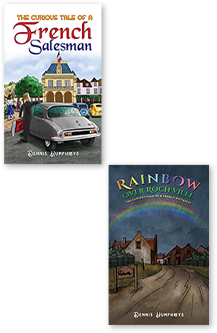
No Trains at the Railway Station
Why are there no trains at the railway station? A strike, a shortage of drivers, or funding cutbacks? None of these, but evolution: not of species but of language. English, like other languages continuously evolves: otherwise, we would still be speaking the language of Chaucer or Shakespeare. In popular language, “railway station” has been replaced by “train station”. Logical, as you catch a bus or coach at a bus or coach station: you catch a train at a train station. But the train companies now use the term “service”, and say, for example, “Welcome aboard the service to Aberdeen calling at…….” If trains are now services, perhaps train stations should be called “service stations”. But that would not work, as a service station is where you put fuel in your car. In the old days, you received service at a service station, like “Check your tryres and your oil, Sir, and clean your windscreen.” This does not happen now, and service stations could be called “fuel stations”. For years property developers have indeed used the term “PFS”: meaning “petrol filling station”. Even this is perhaps getting outdated as we get more EVs.As a writer, I am fascinated by changes in the use of language. A good example is the traditional greeting: “How do you do?” The reply was often: “How do you do?” This demonstrates that the words meant no more than, “Hello”, or as we say these days, “Hi”. It is an odd expression, because “do” usually needs a direct object, such as “I am doing some gardening or doing my homework”. In the expression, it is being used in the sense of “fare”. “How are you faring?” We still sometimes use the expression “Farewell”, meaning “Goodbye”.These days we may be asked, “How are you doing?” Response: “I’m good”, or “Good yea”. If in the past one had said, “I am good”, it would have been an arrogant claim of being virtuous. It is now a shorthand way of saying, “I am in good health”, or “Things are going well for me.” Do” is a small but versatile word, with many uses. I like the expression, “I don’t do stuff”. This means, “I do not take drugs”. So if I find myself on a train (sorry a service), and an old-fashioned police officer says to me, “How do you do? perhaps I should reply, “Honest, officer, I don’t do stuff.” To end this piece, I say, “Farewell readers. I hope you are good in all senses of that word whether at home or on a service.”
Post Views : 153